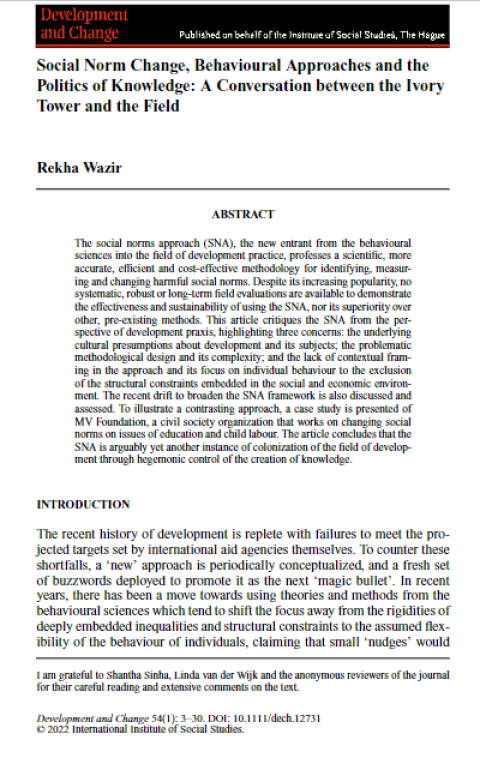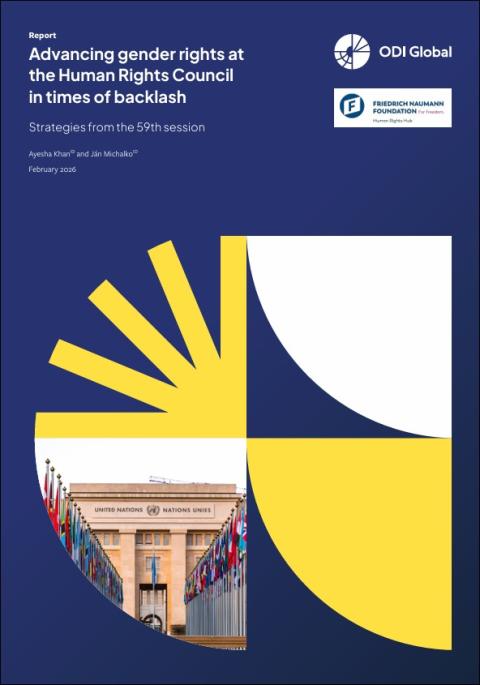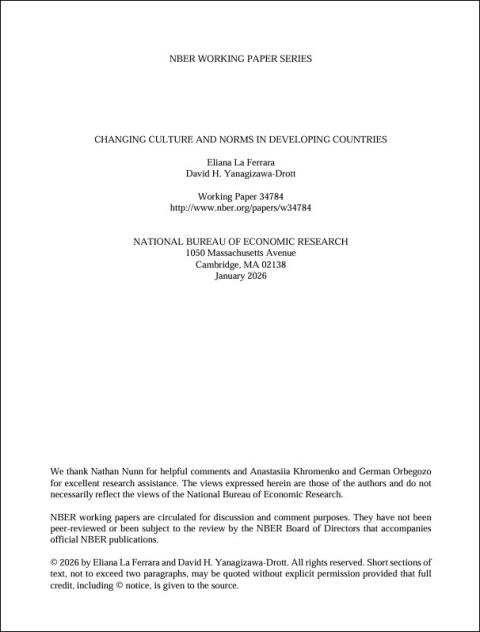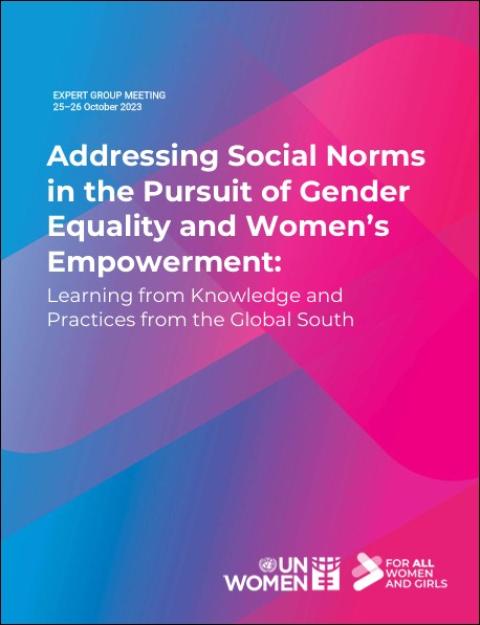- Journal article
- 24 August 2022
Social norm change, behavioural approaches and the politics of knowledge: A conversation between the ivory Tower and the field
- Author: Rekha Wazir
- Published by: International Institute of Social Studies

The social norms approach (SNA), the new entrant from the behavioural sciences into the field of development practice, professes a scientific, more accurate, efficient and cost-effective methodology for identifying, measuring and changing harmful social norms. Despite its increasing popularity, no systematic, robust or long-term field evaluations are available to demonstrate the effectiveness and sustainability of using the SNA, nor its superiority over other, pre-existing methods.
This article critiques the SNA from the perspective of development praxis, highlighting three concerns: the underlying cultural presumptions about development and its subjects; the problematic methodological design and its complexity; and the lack of contextual framing in the approach and its focus on individual behaviour to the exclusion of the structural constraints embedded in the social and economic environment. The recent drift to broaden the SNA framework is also discussed and assessed.
To illustrate a contrasting approach, a case study is presented of MV Foundation, a civil society organization that works on changing social norms on issues of education and child labour. The article concludes that the SNA is arguably yet another instance of colonization of the field of development through hegemonic control of the creation of knowledge.
Related resources
Report
12 February 2026
Published by: ODI Global

ALIGN guide
22 January 2026
Published by: ALIGN

Blog
12 January 2026
Published by: ODI Global

Blog
5 January 2026
Published by: ALIGN

Journal article
1 January 2026
Published by: New Bureau of Economic Research

Policy paper
24 November 2025
Published by: ODI Global

Blog
27 October 2025
Published by: ALIGN

Report
1 October 2025
Published by: Male Allies UK

Toolkit
22 September 2025
Published by: ALIGN

Report
16 September 2025
Published by: UN Women

Briefing paper
1 September 2025
Published by: UNGEI

Briefing paper
10 July 2025
Published by: ODI Global
